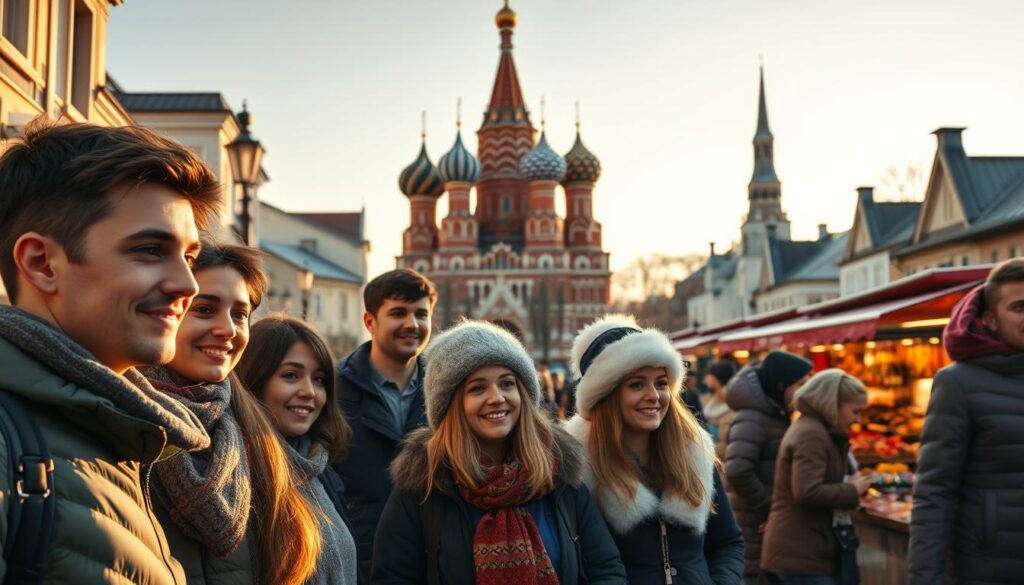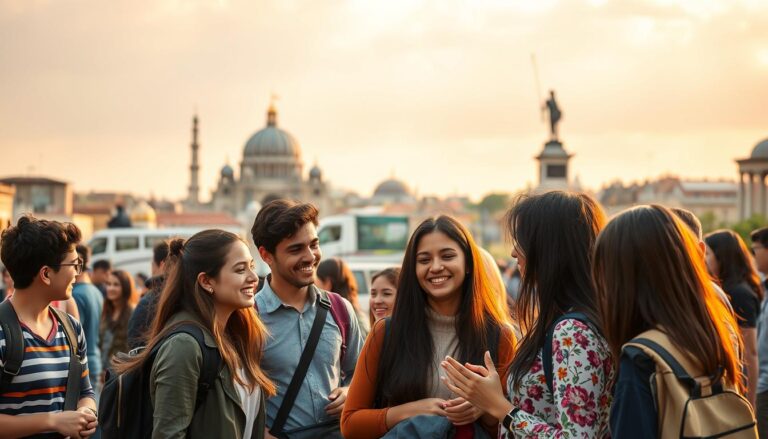Have you ever wondered what it takes to thrive as a medical student in a completely new environment? For many Indian students, pursuing an MBBS degree abroad is a dream come true. However, this journey comes with its own set of challenges, especially when adapting to a different climate and culture.
Studying at a medical university in a foreign country is a long-term commitment, often spanning six years or more. It’s not just about academics; it’s about preparing your body and mind for a new way of life. From managing the temperature changes to ensuring you have the right supplies, every detail matters.
This article will guide you through the essential steps to make your experience smoother. We’ll cover everything from packing the right clothing to understanding the academic demands. Whether it’s staying warm or staying focused, we’re here to help you make the most of this incredible opportunity.
Understanding Russia’s Winter Climate and Its Impact
Understanding the local climate is crucial for students planning to study abroad. Russia’s weather is known for its extremes, which can significantly affect daily life and academic routines. For Indian students, adapting to such conditions requires careful preparation and awareness.
Local Weather Patterns and Temperature Extremes
Russia’s climate varies widely across its regions. In cities like Moscow, temperatures can drop to -20°C, while remote areas experience lows of -50°C. Heavy snowfall and shorter daylight hours are common during the winter months.
These weather patterns can disrupt daily activities, making it essential for students to plan ahead. Proper clothing and accessories are vital to stay warm and comfortable. Here’s a quick overview of temperature ranges in key Russian cities:
| City | Average Winter Temperature (°C) |
|---|---|
| Moscow | -10 to -20 |
| St. Petersburg | -8 to -15 |
| Yakutsk | -40 to -50 |
Challenges for Indian Students in a Harsh Environment
For Indian students, the drastic temperature shift can be overwhelming. The cold weather affects not only physical comfort but also mental well-being. Shorter daylight hours can lead to fatigue and reduced productivity.
Adapting to these conditions requires resilience and planning. Students must invest in quality winter gear and learn to manage their time effectively. For those considering study MBBS abroad at low cost, understanding these challenges is a crucial part of the preparation process.
By planning ahead and staying informed, students can ensure their health and academic performance remain unaffected by the harsh climate.
Practical Winter Survival Tips Russia MBBS: Packing and Preparation
Packing the right essentials can make a world of difference for students studying abroad. For those pursuing an MBBS degree in a new country, preparation is key to balancing academic demands and personal comfort. Proper planning ensures a smooth transition and helps students focus on their education.
Essential Clothing and Winter Gear
Extreme temperatures require specialized clothing and gear. Layering is crucial to staying warm and comfortable. Here’s a list of must-have items for international students:
| Item | Purpose |
|---|---|
| Heavy Winter Coat | Protects against sub-zero temperatures |
| Thermal Wear | Provides base layer insulation |
| Gloves and Hats | Prevents heat loss from extremities |
| Insulated Boots | Keeps feet warm and dry |
Students should also consider purchasing some items locally to save space and ensure suitability for the climate.
Document and Travel Essentials for a Smooth Transition
Proper documentation is vital for a hassle-free journey. Here’s a checklist of important papers and tools:
- Passport and visa
- Admission letter from the university
- Health certificates and medical records
- Financial tools (credit cards, local currency)
Having these documents ready reduces stress and ensures compliance with university and country requirements. Proper preparation allows students to focus on their course and exams without unnecessary distractions.
By packing wisely and organizing essential documents, students can ensure a successful start to their academic journey. This preparation not only supports their education but also enhances their overall experience in a new environment.
Academic and Lifestyle Essentials for a Successful MBBS Journey
Preparing for a medical education abroad involves more than just academic readiness. It’s about equipping yourself with the right tools and strategies to thrive in a new environment. Whether it’s academic supplies or personal care, early preparation ensures a smooth and successful journey.
Must-Have Academic Supplies and Equipment
Starting your medical studies requires essential tools to support your learning. Here’s a list of must-have items for every student:
- Textbooks and Reference Materials: Invest in core medical textbooks and digital resources for comprehensive learning.
- Stethoscope and Lab Coat: These are fundamental for practical sessions and clinical training.
- Notebooks and Stationery: Keep organized notes to stay on top of your coursework.
- Laptop or Tablet: Essential for research, assignments, and accessing online resources.
Having these supplies ready ensures you’re well-prepared for the challenges of a medical university. It also helps build a strong foundation for your future career.
Personal Care and Hygiene Strategies
Balancing academic commitments with personal well-being is crucial. Here are some strategies to maintain health and hygiene:
- Skincare Routine: Cold weather can affect your skin. Use moisturizers and lip balms to stay comfortable.
- Healthy Diet: Prioritize nutritious meals to boost energy and focus during long study hours.
- Regular Exercise: Stay active to improve physical and mental health, especially during stressful periods.
- Hygiene Essentials: Stock up on personal care items like hand sanitizers, masks, and basic medications.
These strategies not only support your studies but also enhance your overall experience as an international student. For more insights on preparing for your MBBS journey in Russia, explore our detailed guide.
By focusing on both academic and lifestyle essentials, you can ensure a successful and fulfilling medical education. Proper preparation sets the stage for a rewarding career in the medical field.
Navigating Cultural Adaptations and Local Traditions
Adapting to a new culture is an exciting yet challenging part of studying abroad. For Indian students pursuing their education in a foreign country, embracing local customs and traditions can enrich their experience. It’s not just about academics; it’s about immersing yourself in a new way of life.

Learning the Local Language and Embracing Russian Culture
One of the first steps to cultural adaptation is learning the local language. Russian is widely spoken and understanding it can make daily life easier. Start with basic phrases and use language apps or guidebooks to build your skills. Engaging with locals in their native tongue fosters connections and helps you integrate into the community.
Embracing Russian culture also means participating in local traditions. From celebrating New Year’s Eve with festive gatherings to enjoying Maslenitsa, a traditional pancake festival, these experiences create lasting memories. They also help ease homesickness by making you feel more connected to your new home.
Tips for Enjoying Traditions and Local Cuisine
Exploring local cuisine is a delicious way to connect with the culture. Try traditional dishes like borscht, pelmeni, and blini. These meals not only satisfy your taste buds but also offer insights into Russian history and traditions. Sharing food with friends, both local and international, strengthens bonds and creates a sense of belonging.
Participating in cultural events is another way to immerse yourself. Attend theater performances, visit museums, and explore the city’s landmarks. These activities provide a deeper understanding of the area and its heritage. They also offer a break from academic pressures, balancing your student life with enriching experiences.
Building a support network is crucial for a smooth transition. Make friends with local peers and other international students. They can offer advice, share experiences, and provide emotional support. Engaging with the community not only enhances your education but also creates lifelong friendships and unforgettable memories.
For more insights on balancing academics and cultural exploration, check out our guide on living and studying abroad. Adapting culturally is an integral part of managing the challenges of studying abroad and making the most of this incredible opportunity.
Conclusion
Embarking on a journey to study medicine abroad is a transformative experience that shapes both personal and professional growth. With careful planning and dedication, students can navigate the challenges of adapting to a new environment while excelling in their education.
Preparation is key to success. From packing essentials to understanding local culture, every step contributes to a smoother transition. Balancing academic demands with lifestyle adjustments ensures a holistic student experience, paving the way for a rewarding career as a doctor.
Challenges, whether cultural or academic, are opportunities for growth. Embracing these experiences not only enhances your education but also prepares you for the future. Every moment spent learning and adapting is a step closer to achieving your dreams.
In conclusion, this journey is a unique opportunity to grow, learn, and thrive. Stay focused, embrace every challenge, and make the most of this incredible experience. Your dedication today will shape the doctor you become tomorrow.




